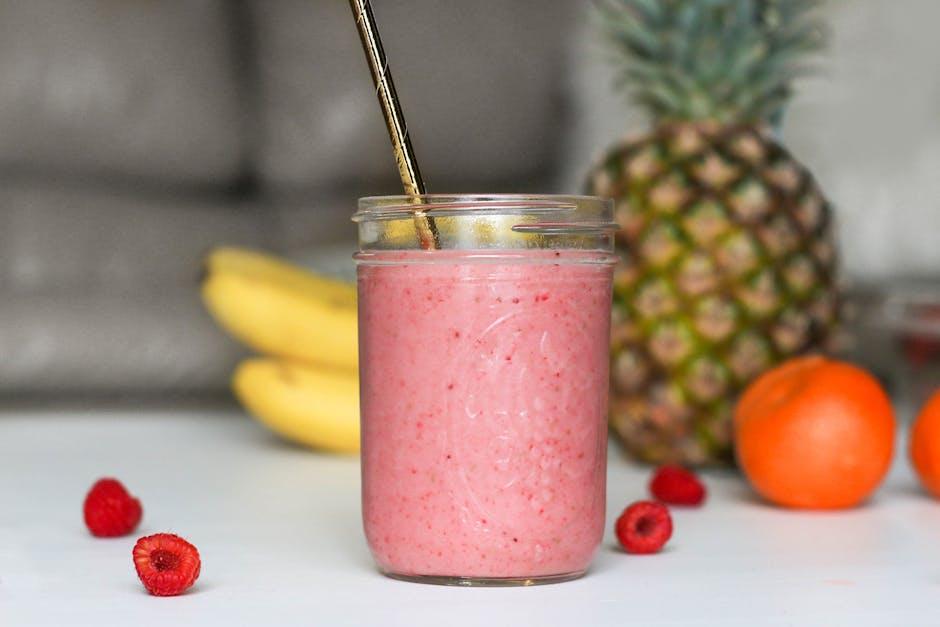In today’s fast-paced world, where time often slips through our fingers like sand, the quest for convenience has given rise to the popularity of meal replacement shakes. Promising the nutritional benefits of a full meal in a quick, drinkable form, these shakes have captured the attention of busy professionals, fitness enthusiasts, and those seeking weight management solutions. But as they line the shelves of health stores and supermarkets, a pressing question emerges: are meal replacement shakes a truly healthy alternative to traditional meals? In this article, we delve into the ingredients, nutritional value, and potential benefits and drawbacks of these liquid meals to uncover whether they can stand toe-to-toe with the rich, diverse world of whole foods.
Understanding the Nutritional Value of Meal Replacement Shakes
When considering meal replacement shakes, it’s crucial to evaluate their nutritional composition. These shakes often promise a balanced mix of essential nutrients, but their actual value can vary significantly between brands. A well-formulated shake should ideally include:
- Proteins: Essential for muscle repair and growth.
- Carbohydrates: Provide energy, but watch for added sugars.
- Fats: Healthy fats are vital for brain function and energy.
- Vitamins and Minerals: Ensure you’re meeting daily nutritional requirements.
- Fiber: Aids digestion and promotes a feeling of fullness.
It’s important to note that while these shakes can offer convenience, they may lack the phytonutrients and antioxidants found in whole foods. Always check the label for any artificial additives or preservatives that could detract from their health benefits. Ultimately, while they can be a useful tool for those on the go, relying solely on shakes might not provide the comprehensive nutrition that whole meals offer.

Evaluating Health Benefits and Potential Drawbacks
Meal replacement shakes offer a convenient solution for those with busy lifestyles, providing essential nutrients in a quick, portable form. Health benefits include balanced macronutrients, controlled calorie intake, and often, added vitamins and minerals. They can aid in weight management by helping control portion sizes and reducing the temptation of unhealthy snacks.
However, there are potential drawbacks to consider. Some shakes may contain high levels of sugar or artificial ingredients, which can negate their health benefits. Additionally, relying solely on meal replacements might lead to a lack of dietary variety, potentially missing out on important nutrients found in whole foods. It’s essential to choose products wisely and consider them as a supplement to a balanced diet rather than a complete substitute.
- Pros: Convenience, balanced nutrients, portion control.
- Cons: Possible high sugar content, lack of variety, dependency risk.
Practical Tips for Incorporating Shakes into Your Diet
Integrating meal replacement shakes into your diet can be both convenient and beneficial when done thoughtfully. Here are some practical tips to help you make the most of these nutritional powerhouses:
- Choose Quality Ingredients: Opt for shakes with high-quality proteins, healthy fats, and a good balance of carbohydrates. Avoid those with excessive sugars or artificial additives.
- Timing is Key: Use shakes as a substitute for meals when you’re pressed for time, such as breakfast or lunch. This can help maintain energy levels without compromising nutrition.
- Supplement, Don’t Replace: While shakes can replace a meal occasionally, ensure they complement a balanced diet. Incorporate whole foods like fruits, vegetables, and grains for comprehensive nutrition.
- Personalize Your Shake: Add your favorite fruits, nuts, or seeds to boost flavor and nutritional value, creating a more satisfying and enjoyable meal experience.
- Stay Hydrated: Remember to drink plenty of water alongside your shakes to support digestion and overall health.
By thoughtfully incorporating these strategies, meal replacement shakes can become a seamless part of a balanced and healthy lifestyle.

Balancing Shakes with Whole Foods for Optimal Nutrition
While meal replacement shakes offer a convenient solution for busy lifestyles, integrating them with whole foods can enhance nutritional balance. Whole foods provide essential nutrients, fiber, and antioxidants that shakes might lack. By combining the two, you can achieve a more comprehensive nutrient profile.
- Fiber Boost: Pair your shake with a small salad or a piece of fruit to increase fiber intake, aiding digestion and satiety.
- Protein Punch: Add a handful of nuts or seeds to your shake to enhance protein content, supporting muscle repair and growth.
- Vitamin Variety: Incorporate leafy greens or colorful vegetables alongside your shake to supply a broader spectrum of vitamins and minerals.
Balancing shakes with whole foods not only maximizes nutritional benefits but also helps maintain a diverse and satisfying diet. By being mindful of these combinations, you can enjoy the convenience of shakes without compromising on health.





